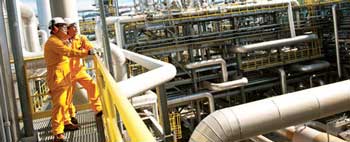Petronas cancels synthetic rubber at RAPID project; savings of US$1.3 bn

Petronas Chemicals Group Bhd (PCG), partly owned by Malaysia’s national petrochemicals/oil company Petronas, has cancelled the proposed US$1.3 billion elastomers project at the Refinery and Petrochemicals Integrated Development (Rapid) project in Johor. In a filing to the Malaysian Stock Exchange, PCG said the cancellation of the project followed a review which was conducted on various key aspects of the elastomers project, including the market outlook and projected return on investment.
"The group expects the project cancellation to improve its overall returns of investments,” it said.
Last year in November, PCG acquired from Petronas Refinery and Petrochemical Corporation Sdn Bhd (PRPC), a wholly owned subsidiary of Petronas, 100% equity in three companies, namely PRPC Glycols, PRPC Polymers and PRPC Elastomers, which are part of the RAPID.
The initial total projected investment cost for the polymers, glycols and elastomers segments was approximately US$3.9 billion with a combined capacity of 3.5 million tonnes/year. The cancellation of the elastomers project will result in capacity reduction of 0.35 million tonnes/year and projected investment cost by US$1.3 billion.
PCG said it remained committed to the rest of the petrochemical projects that it had undertaken, namely the polymers and glycols projects, with PRPC Polymers and PRPC Glycols scheduled to start in 2019.
PRPC Glycols is building an ethylene oxide/ethylene glycol plant and PRPC: LLDPE and 900 ktpa PP plants.
At an analyst briefing last year, President/CEO of PCG, Datuk Sazali Hamzah, had said that the RAPID project represented “the next phase of growth” for PCG. He said, “PCG is very excited to participate in RAPID petrochemical project. With this project we will be able to strengthen our petrochemical basic and concurrently diversify into selective derivatives, speciality and solutions,” he had said during the briefing.
Petronas had in 2013 signed a letter of intent with Italy’s Versalis to build the rubber plant.
Synthetic rubber plants in Singapore
Meanwhile, US-based ExxonMobil Chemical and Germany’s Lanxess are involved in world class synthetic rubber plants in Jurong Island, Singapore.
ExxonMobil Chemical is building a halobutyl rubber plant on Jurong Island that is expected to push its capacity to 140,000 tonnes/year by 2017 http://www.plasticsandrubberasia.com/oct2014/materials11.html
The US company is utilising its expanded steam cracking capability at Singapore, which provides a platform for growth through a wide range of petrochemical building blocks that can be further upgraded to speciality products.
German competitor Lanxess inaugurated its new butyl rubber plant on Jurong Island in 2013. It has a capacity of 100,000 tonnes/year and produces premium halobutyl rubber, as well as regular butyl rubber.
As a result of the decline in the automotive market, specifically tyres where synthetic rubber has a high take up rate, leading to declining profits, Lanxess has been struggling to reduce its debt and early this year entered into a joint venture with Saudi Aramco, known as Arlanxeo, to relieve the burden: http://www.plasticsandrubberasia.com/apr2016/company2.html
(PRA)Copyright (c) 2016 www.plasticsandrubberasia.com. All rights reserved.








































